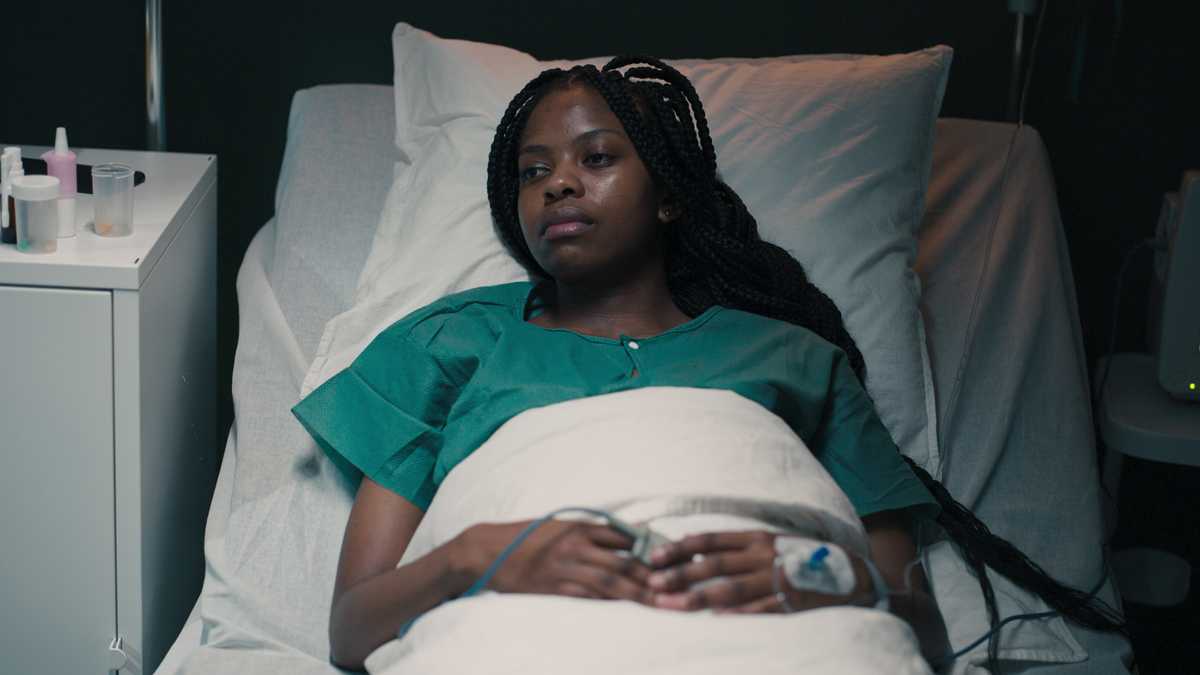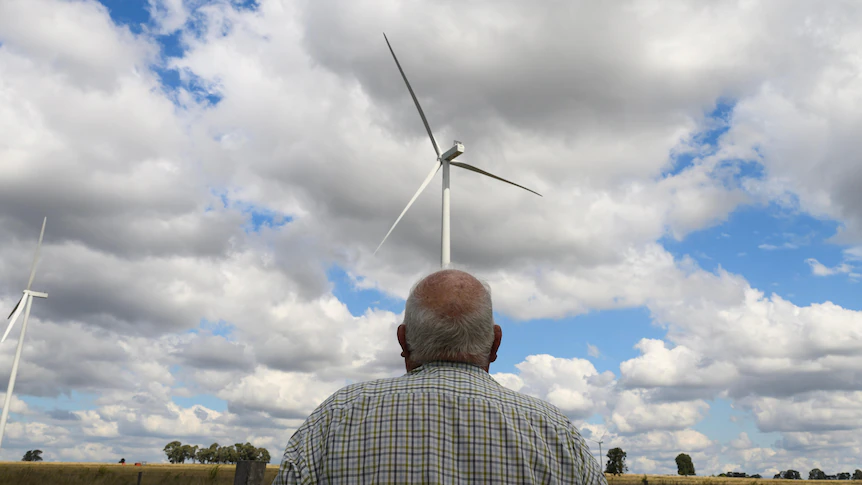Copyright yen

The light above me buzzed faintly, and a white glow stung my eyes when I opened them. My throat burned like I had swallowed dust. A scent of disinfectant filled the air. Somewhere in the distance, a machine beeped softly, steady and slow. I blinked and saw a man leaning over me, his face blurry at first, then familiar. "Hey, baby," he whispered, squeezing my hand. "You're finally awake." I tried to speak, but my voice cracked. He smiled and said, "It's me, Denis. I've been here every day." My heart fluttered in confusion. Denis? We had dated for barely three months before I ended it. Why would he be here? I wanted to ask for my mum, but he hushed me gently, brushing my hair aside. "It's okay. Don't worry about anything," he said softly. "I told the nurses I'm your boyfriend. They'll let me handle things." Something inside me froze. I felt a quiet alarm rising beneath my foggy thoughts. My body couldn't move, but my mind whispered one clear thing: something was wrong. Before the crash, I was the kind of person who planned everything. I worked as a junior architect in Upper Hill, always sketching buildings and daydreaming about spaces full of light. My mum, a retired nurse, lived in South B with my aunt, who was paralysed and needed care. We spoke every night. She was my emergency contact on everything—from work records to my phone plan. Denis came into my life through a mutual friend. He was charming in a quiet way, a freelance photographer who liked to call himself a "visual storyteller." He wasn't the type I usually dated, but he was attentive, always asking if I'd eaten and sending sunrise photos captioned for your kind of light. For a while, I liked the attention. He'd bring me tea at work, help me carry my laptop bag, tell me I worked too hard. But soon, the sweetness started to feel heavy. If I didn't answer his calls immediately, he'd say, "You're probably with someone else." If I went out with my colleagues, he'd text nonstop asking for proof. When I finally broke up with him, it wasn't messy. Just quiet. I told him we weren't right for each other. He said, "You'll see. No one will care for you like I do." A month later, I was driving to a site visit in Westlands when a lorry swerved out of its lane. I remember the flash of metal, the screech of tyres, and then—nothing. They told me later I'd been in the ICU for two weeks. My left leg had fractures, two ribs were cracked, and my head had taken a serious knock. I had drifted between sleep and oblivion. My mum was listed as my next of kin, and the hospital contacted her immediately. She had sat by my bed, praying every morning before going home to rest. But she caught a flu after the first week and couldn't return for a few days. That's when Denis appeared. He must have learned about my accident from social media; a friend had posted a prayer message with my name. The nurses said he came in crying, claiming to be my boyfriend. He even brought flowers and spoke to the ward clerk as if he'd been there since day one. He learned my room number, memorised the visiting hours, and began showing up with quiet authority. When I finally woke up, he was already there. The staff had gotten used to him—he fetched water, signed visitor logs, and even gave updates like family would. They trusted him. He had turned my unconsciousness into permission. But I began noticing small things in that fragile space between pain and awareness. His phone calls were hidden, and his whispers to the nurses were too quick. Whenever I asked about my mum, he said, "She's resting. I'll update her." I was too weak to question him. My body healed slower than my fear. It was like waking up inside someone else's story, unsure how it began. Still, a voice deep inside me whispered that something about Denis's presence was not love—it was control. As the days passed, I began piecing things together like scattered fragments of a dream. My head still throbbed from the injury, and the nurses spoke to me slowly, as if my mind might slip away again. But I could see more clearly now. There were fewer tubes, and I could lift my arm without help. Denis remained constant. Morning, afternoon, evening. He sat beside my bed like a guard, scrolling on his phone, occasionally glancing at me with that half-smile that once felt gentle but now seemed rehearsed. Whenever a nurse entered, he straightened, his voice polite and caring. "She's doing better, isn't she?" he'd say, as if he were part of my recovery plan. I wanted to ask him to leave, to give me space, but every time I tried, my voice shrank. I was grateful, confused, and afraid of conflict. My body was weak, and he moved with confidence in a world where I could barely stand. On the third day after waking, I asked about my phone. He said it had been damaged in the crash but claimed he'd "handled" everything. He said, "You don't need stress. I've been replying to messages from work and friends." I stared at him. "You've been using my phone?" He smiled. "Only to protect you, Maureen. People were asking questions, and I didn't want them to worry." My heart pounded. Something about the word "protect" sounded wrong. He was too calm, too assured. Later that afternoon, a nurse named Regina came to check my vitals. She was warm and motherly, her accent thick with Coast tones. Denis stood close, answering her questions for me. "She's been fine today," he said before I could speak. Regina gave him a look, then turned back to me. "How are you feeling, dear?" "I'm okay," I whispered. "Can I see my mum soon?" Denis interrupted again. "Her mum's been recovering. She told me to keep her updated." Regina frowned slightly but nodded. When she left, Denis smiled at me as if nothing had happened. That night, I couldn't sleep. The machines' beeping felt louder, and Denis's breathing in the chair beside me grated against my nerves. He had dozed off with his phone still in his hand. I wanted to reach for it, but my body ached too much to move. The next morning, I asked one of the younger nurses, Cate, if she could help me call my mum. She said she'd try, but Denis was already there when she returned, holding my phone. He said, "I spoke to your mum earlier. She said she'll come tomorrow." Cate looked puzzled. "But I thought her number wasn't reachable," she said softly. Denis gave her a tight smile. "Maybe you dialled wrong." The exchange left tension in the air. Cate didn't say more, but her eyes lingered on me before she walked away. Over the next few days, Denis's visits became more controlling. He rearranged my food tray, told the cleaner when to come, and even whispered that he had "handled my bills." That night, I overheard two nurses talking outside my curtain. "That man's always here," one said quietly. "But his name isn't listed in her file. Only the mother is next-of-kin." "Maybe he's family through the boyfriend line," the other replied. "You know how people are." Their voices faded, but the first nurse's doubt stayed with me. The next morning, I gathered my strength. When Denis left to get breakfast, I asked Regina if she could check whether my mum had really called. She looked at me gently and said, "Your mum came yesterday evening. She said she wasn't allowed in. The man said visiting hours were over." My stomach twisted. "He lied," I whispered. Regina's expression hardened. "Don't worry, my dear. We'll look into this." That night, Denis arrived as usual, smiling with a bouquet of fake flowers. He set them on my tray and leaned close. "I told your mum to rest. You only need me now." I felt tears sting my eyes, not from affection but fear. I realised then that I wasn't just recovering from a crash—I was trapped beside someone who wanted to own my story. Regina didn't confront him right away. She waited for her shift supervisor, a tall, calm man named Paul who had worked at KNH for over a decade. The next morning, while Denis was out making one of his "phone calls," Regina and Paul came to my bedside. "Maureen," Paul said gently. "We need to ask a few questions. Do you know this man—officially? Is he your next of kin?" I hesitated, my voice still weak. "No. We dated for a short time. We broke up before the accident." Paul exchanged a look with Regina. "We thought so. Your file lists your mother, Florence Maina, as your only emergency contact. Yet, he has been signing in as 'partner' and instructing the staff." I could feel my chest tighten. "He said my mum told him to handle things." Regina shook her head. "Your mum has been coming here. She was denied entry twice because he told the desk you were resting." Tears filled my eyes. My voice cracked. "Can I see her? Please." Paul nodded. "First, we need to verify everything. Hospital policy requires ID confirmation for visitors. We'll check the log and CCTV. For now, you don't have to worry." He left, and Regina gave my hand a reassuring squeeze. "Just rest, Maureen. We'll make sure no one takes advantage of you again." When Denis returned that afternoon, his energy was different. He looked nervous, eyes darting around the room. He smiled quickly, forced. "The nurse said you had extra visitors earlier?" I nodded slowly. "They came to ask questions." He set the bag of fruit down too hard. "Questions? About what?" I didn't answer. My silence seemed to shake him. He sat down, leaning close. "You shouldn't trust everyone, Maureen. People get jealous when they see how close we are." Regina appeared at that moment, her face neutral. "Excuse me, Denis. Could you come to the desk for a minute? We need to verify your visitor details." He hesitated. "Is there a problem?" "Just routine," she said smoothly. He followed her out, his movements stiff. When Regina returned, she looked composed, but her eyes carried a storm. She closed the curtain and spoke softly. "Maureen, he's not coming back." I blinked, confused. "What happened?" She sighed. "We asked for his ID. The name he gave doesn't match any record we have on file. The phone number he wrote in the visitor log belongs to a different person. We scanned his temporary pass—he altered it. Paul checked the CCTV. He has been sneaking in after hours, claiming to be family." My breath caught. "But how—how could that happen?" "Unfortunately, he used your name convincingly and presented himself as the boyfriend. Most staff didn't question it because he was calm and consistent." Regina paused, her tone softening. "We've reported it to the hospital's security office. Your mother has been informed and is on her way. The DCI Gender Desk will come tomorrow to take your statement." The tears came fast. Relief and anger mixed inside me like fire and water. I had been lying helpless while someone shaped my world through deceit. Later that evening, Paul himself came to assure me. "We'll review our procedures, Maureen. Visitor verification will change because of this. No one will walk in here again without proper checks." When my mother arrived, she held me tight, trembling. "My child, I thought I'd lost you twice," she whispered. I buried my face in her shoulder. For the first time since the accident, I felt safe. The following morning, two officers from the DCI Gender Desk arrived. One of them, Inspector Moraa, took notes as she spoke with Regina and Paul. She then turned to me, her expression gentle. "Maureen," she said, "we've taken Denis into custody for questioning. He was caught trying to leave through the outpatient gate. Security retrieved his fake visitor pass and confirmed the CCTV footage. You're safe now." The words sank in slowly. My chest loosened with each breath, like I was reclaiming air that had been stolen. I thanked her quietly. Over the next few days, KNH became a different world. The ward's tone shifted from uneasy whispers to cautious warmth. Paul led a short meeting for the staff, explaining new verification procedures—every visitor would now need a wristband scan and ID cross-check with the hospital's EMR (Electronic Medical Record) system. As part of the process, each patient's next-of-kin record was reviewed and signed off again. When Regina brought the form to my bedside, I smiled faintly and wrote my mother's name in neat capital letters. "Let's ensure this doesn't happen again," I said. She nodded. "You're stronger than you think, Maureen." The DCI officers returned two days later to update us. Denis had confessed that he lied his way in, hoping to "rekindle" what we had once shared. He'd told them he couldn't stand the idea of losing me, that he wanted to "protect me while I was vulnerable." The officers weren't moved. They immediately filed an application for a restraining order. Inspector Moraa explained that such behaviour wasn't romance—it was obsession, and if unchecked, it could have ended dangerously. A week later, I was moved to a quieter bay in the orthopaedic wing. My new room overlooked a small garden where birds nested in the jacaranda trees. The calm there felt like medicine. My mother visited daily, sometimes with my aunt. We laughed again. We prayed together. Slowly, my body remembered what peace felt like. Before discharge, Paul came to say goodbye. "You know," he said thoughtfully, "this case will change our system. We're drafting new SOPs for visitor verification. You helped us see the gap." That meant more to me than he knew. Out of something frightening came a change that would protect others. A few weeks later, when I was strong enough to walk with crutches, I returned to KNH—this time not as a patient but as a volunteer for the patient-rights initiative. Regina hugged me when she saw me in the hallway. "Look at you," she said warmly. "Back with purpose." I smiled. "I owe this place my second chance." As part of my work, I spoke with new patients about verifying caregivers, confirming visitor IDs, and speaking up when something felt off. In recovery, I learned that vulnerability is sacred, but it can also be dangerous when others see it as a door to step through uninvited. Hospitals hold the most fragile parts of our lives—our pain, our silence, our dependence. When those spaces are violated, it cuts deeper than any physical wound. I used to think love meant surrender, trusting someone completely. But love without consent isn't care—it's control. Denis's deception showed me that sometimes danger wears a familiar face and speaks softly. What saved me wasn't strength alone; it was verification, truth, and the courage of others who cared enough to ask questions. Now, every time I walk through KNH, I feel gratitude: for Regina who noticed what didn't add up; for Paul, who believed my quiet fear; and for my mum, whose prayers reached even when I couldn't. Healing taught me a simple truth: boundaries protect life. Whether in love, health, or faith, we must confirm before we trust, and verify before surrender. If someone claims to care for you when you're most vulnerable, ask yourself—are they holding your hand to help you rise, or holding it so you can't move? This story is inspired by the real experiences of our readers. We believe that every story carries a lesson that can bring light to others. To protect everyone’s privacy, our editors may change names, locations, and certain details while keeping the heart of the story true. Images are for illustration only. If you’d like to share your own experience, please contact us via email. Source: YEN.com.gh



